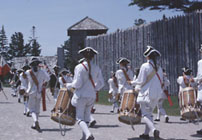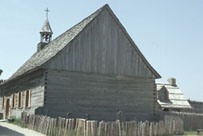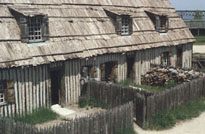Fort Michilimackinac



France at Mackinac: A Pictorial Record of French Life and Culture, 1715-1760, by Eugene T. Petersen (Mackinac Island State Park Commission, Mackinac Island, Michigan,
1968).
Fort Michilimackinac, 1715-1781: An Archaeological Perspective on the Revolutionary
Frontier, by Lyle M. Stone (Michigan State University Museum, East Lansing, 1974).
Excavations at Fort Michilimackinac: 1978-1979, the Rue de la Babillarde, by Donald
P. Heldman and Roger T. Grange, Jr., Archaeological Completion Report 3 (Mackinac State Historic Parks, Mackinac Island, Michigan, 1981).
Craft Industries at Fort Michilimackinac, 1715-1781, by Lynn L. Morand, Archaeological Completion Report 15 (Mackinac State Historic Parks, Mackinac Island, Michigan, 1994).


